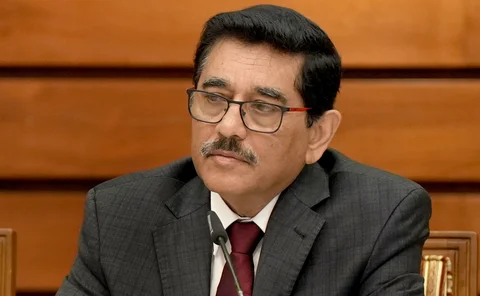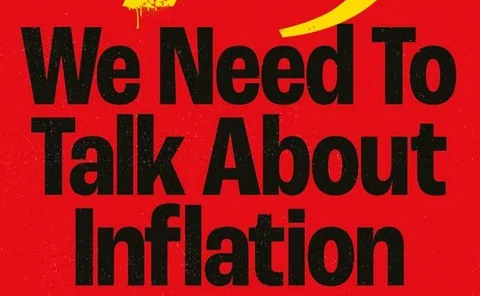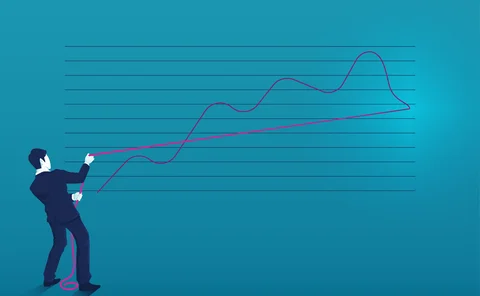Output gap
BoJ governor reaffirms preference for rate hikes
Ueda says policy normalisation should continue amid near-zero output gap and tight labour conditions
Philippines eases policy 25bp to 5% ‘Goldilocks zone’
BSP governor says one more cut likely this year as bank cites risks posed by US trade policy
Nandalal Weerasinghe on Sri Lanka’s IMF programme, central bank reforms and road to recovery
The Central Bank of Sri Lanka governor speaks about his return from retirement to aid Sri Lanka’s structural reforms and recapitalisation, reinforce central bank independence and develop financial resilience
‘Pooling’ models generates better output gap estimates – paper
Economists say measuring gap in real time is particularly challenging in developing countries
DNB paper examines robustness of monetary policy
Policy must avoid tail risks caused by central banks’ uncertainty over output gap, researchers argue
Book notes: We need to talk about inflation, by Stephen King
A short, sensible book that highlights key issues – and might make a good, belated Christmas gift!
A league table for central bank hawkishness
Steve Kamin runs the numbers to assess which central banks have raised rates most aggressively
Tight monetary policy can scar economy, SF Fed research finds
Central banks may not be able to undo effects on productivity and potential output, paper says
Jackson Hole in the wake of policy rules
Symposium heralds a shift to relying on incoming data and judgement, rather than rules or even formal models, to hit inflation targets, writes Barry Eichengreen
Challenges ahead for Ueda’s easing commitment
BoJ governor’s plan to maintain monetary easing until 2% inflation is hit may not be easy, writes Sayuri Shirai
ECB’s Panetta warns tighter policy could inflict unnecessary damage
Monetary policy could permanently reduce potential output, argues ECB board member
Economy’s ‘first responders’ now in the line of fire
Forceful but late interventions to combat inflation raise the risk of central bank overreactions
How central bank mistakes after 2019 led to inflation
Central banks must acknowledge their own mistakes and outline concrete steps to restore the public’s confidence in their ability to ensure price stability, write Graeme Wheeler and Bryce Wilkinson*
Tackling surging inflation
Central banks around the world are grappling with rapid price rises, with some taking very different routes to one another
James Bullard on Fed policy, action and governance
St Louis president calls for tapering amid “exceptional” job market and risk of “more persistent” inflation, quantifies ‘big tent language’ for pioneering AIT move, and details Congress’s role in Fed ethics oversight
Covid-19, crypto and climate weigh on global economy – GFSR
Central banks face difficult “intertemporal trade-offs”; poorer nations unlikely to regain pre-Covid growth levels for “many, many years”, says IMF’s financial counsellor Tobias Adrian
Summers fears for Fed’s ability to remove ‘punchbowl’
Central banks may not be able to counter inflation threat amid possible return to 1960s economics, says former US Treasury secretary
Larry Summers on stagflation risks, lessons from Delphi and never-ending ‘punch’
The former US Treasury secretary speaks about fiscal ‘overexpansion’, Fed/Treasury debt discord, the pitfalls of ‘unknown unknowns’ and central bankers ‘unable’ to remove the ‘punchbowl’
BoE officials fear long-term ‘scarring’ as uncertainty hits record high
MPC members broadly gloomy on the outlook, but there is “huge” uncertainty, says Andrew Bailey
Growth has replaced slack in Phillips curve relationship – Cleveland Fed paper
Findings could have “substantial disinflationary” implications during current recession, researchers say
Iran’s race towards monetary policy reform faces high hurdle reality
The Majlis Research Center’s Tohid Atashbar says positive outcomes from the Iranian central bank’s fast-tracking of monetary policy reform – made in response to Covid-19 and US sanctions – may prove difficult to deliver























